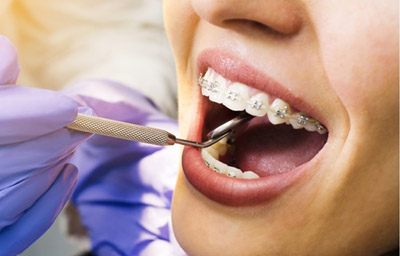Unknown Facts About Causey Orthodontics
Table of ContentsThe Basic Principles Of Causey Orthodontics Some Known Facts About Causey Orthodontics.Causey Orthodontics Fundamentals ExplainedGetting My Causey Orthodontics To WorkThe Ultimate Guide To Causey Orthodontics
Neglecting occlusal partnerships, it was regular to eliminate teeth for a selection of oral problems, such as malalignment or overcrowding. The principle of an undamaged dentition was not extensively appreciated in those days, making bite correlations appear unnecessary. In the late 1800s, the idea of occlusion was important for developing trustworthy prosthetic replacement teeth.As these principles of prosthetic occlusion advanced, it became an important tool for dental care. It was in 1890 that the work and effect of Dr. Edwards H. Angle began to be felt, with his payment to modern orthodontics especially notable. Originally concentrated on prosthodontics, he showed in Pennsylvania and Minnesota before routing his attention in the direction of dental occlusion and the therapies needed to preserve it as a regular condition, thus coming to be referred to as the "father of modern orthodontics".

The concept of optimal occlusion, as postulated by Angle and included into a category system, enabled a shift in the direction of dealing with malocclusion, which is any kind of inconsistency from normal occlusion. Having a complete set of teeth on both arcs was very demanded in orthodontic therapy because of the requirement for exact relationships in between them.
Fascination About Causey Orthodontics
As occlusion became the essential concern, facial percentages and looks were neglected - family orthodontics. To attain suitable occlusals without utilizing exterior forces, Angle postulated that having excellent occlusion was the finest means to gain optimal face aesthetic appeals. With the passing away of time, it became fairly obvious that also an outstanding occlusion was not ideal when thought about from an aesthetic point of view
Charles Tweed in America and Raymond Begg in Australia (that both examined under Angle) re-introduced dentistry extraction right into orthodontics throughout the 1940s and 1950s so they can improve face esthetics while also guaranteeing better security concerning occlusal partnerships. In the postwar period, cephalometric radiography begun to be made use of by orthodontists for measuring changes in tooth and jaw position brought on by growth and treatment. It became evident that orthodontic therapy could change mandibular growth, causing the formation of useful jaw orthopedics in Europe and extraoral force measures in the US. Nowadays, both functional home appliances and extraoral gadgets are used around the globe with the objective of changing growth patterns and forms. As a result, going after real, or at the very least improved, jaw partnerships had actually come to be the main goal of therapy by the mid-20th century.
The Facts About Causey Orthodontics Uncovered
 The American Journal of Orthodontics was developed for this function in 1915; prior to it, there were no scientific purposes to follow, neither any kind of precise category system and braces that lacked attributes. Until the mid-1970s, braces were made by covering metal around each tooth. With advancements in adhesives, it came to be possible to rather bond metal braces to the teeth.
The American Journal of Orthodontics was developed for this function in 1915; prior to it, there were no scientific purposes to follow, neither any kind of precise category system and braces that lacked attributes. Until the mid-1970s, braces were made by covering metal around each tooth. With advancements in adhesives, it came to be possible to rather bond metal braces to the teeth.This has had significant impacts on orthodontic therapies that are carried out routinely, and these are: 1. Right interarchal partnerships 2. Proper crown angulation (tip) 3.
The advantage of the design lies in its brace and archwire combination, which needs just minimal cable flexing from the orthodontist or medical professional (affordable orthodontist near me). It's appropriately named after this attribute: the angle of the slot and density of the bracket base ultimately figure out where each tooth is situated with little need for additional adjustment
Fascination About Causey Orthodontics
Both of these systems used identical braces for every tooth and necessitated the flexing of an archwire in three airplanes for locating teeth in their wanted positions, with these bends determining supreme positionings. When it pertains to orthodontic home appliances, they are separated right into two types: detachable and dealt with. Removable appliances can be taken on and off by the person as required.

Hence, nearly all modern-day fixed home appliances can be considered variants on this edgewise device system. Early 20th-century orthodontist Edward Angle made a major contribution to the world of dental care. He developed four distinct appliance systems that have actually been utilized as the basis for many orthodontic therapies today, disallowing a couple of exemptions.
How Causey Orthodontics can Save You Time, Stress, and Money.

The cable ended in a thread, and to relocate ahead, an adjustable nut was used, which enabled for a rise in circumference. By ligation, each individual tooth was connected to this extensive archwire (orthodontist services). Because of its limited series of activity, Angle was not able to achieve specific tooth placing with an E-arch
These tubes held a soldered pin, which can be rearranged at each consultation in order to relocate them in location. Called the "bone-growing home appliance", this contraption was theorized to encourage much healthier bone development as a result of its capacity for moving pressure straight to the origins. Implementing it confirmed troublesome in truth.
Comments on “The Causey Orthodontics PDFs”